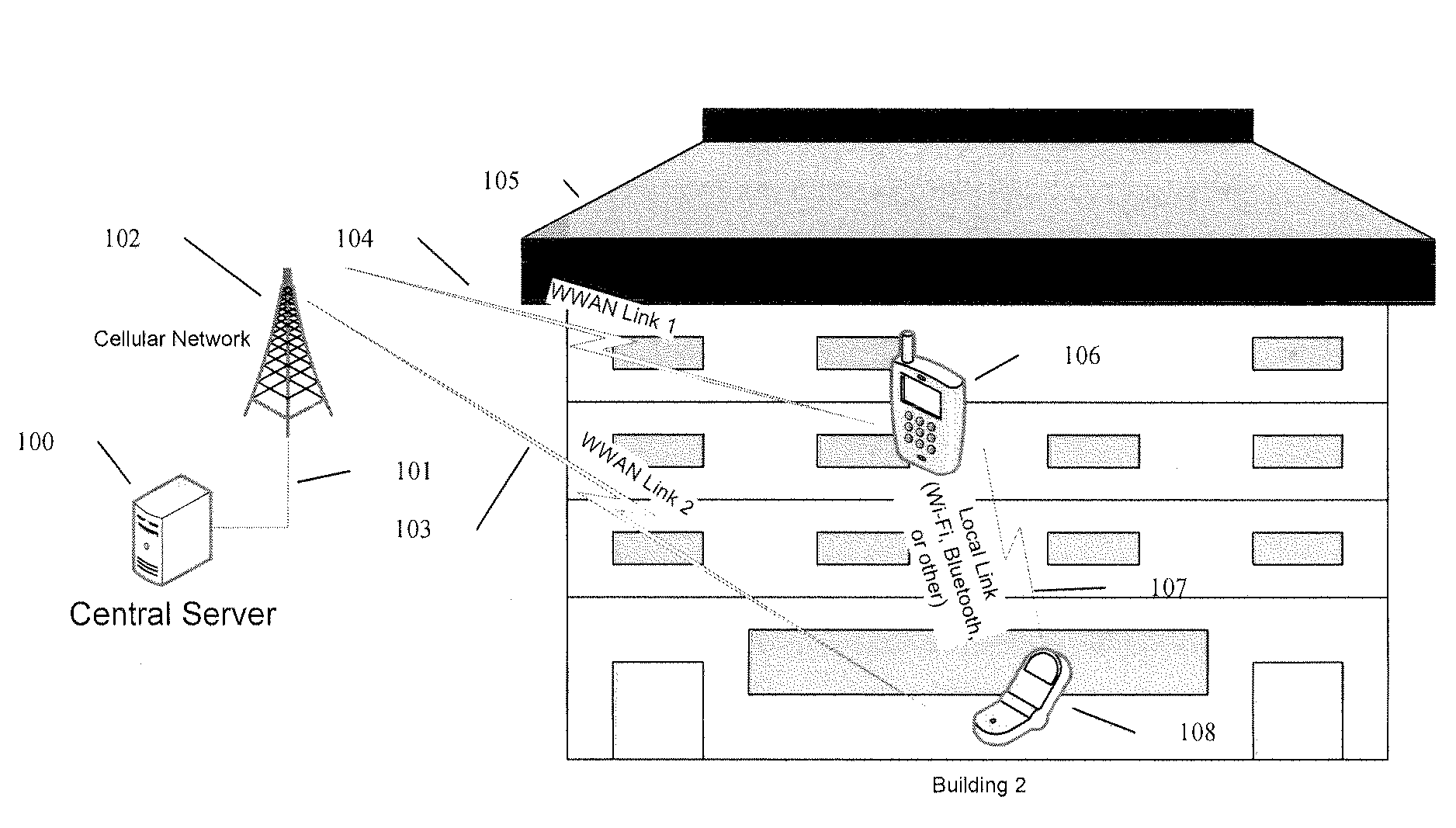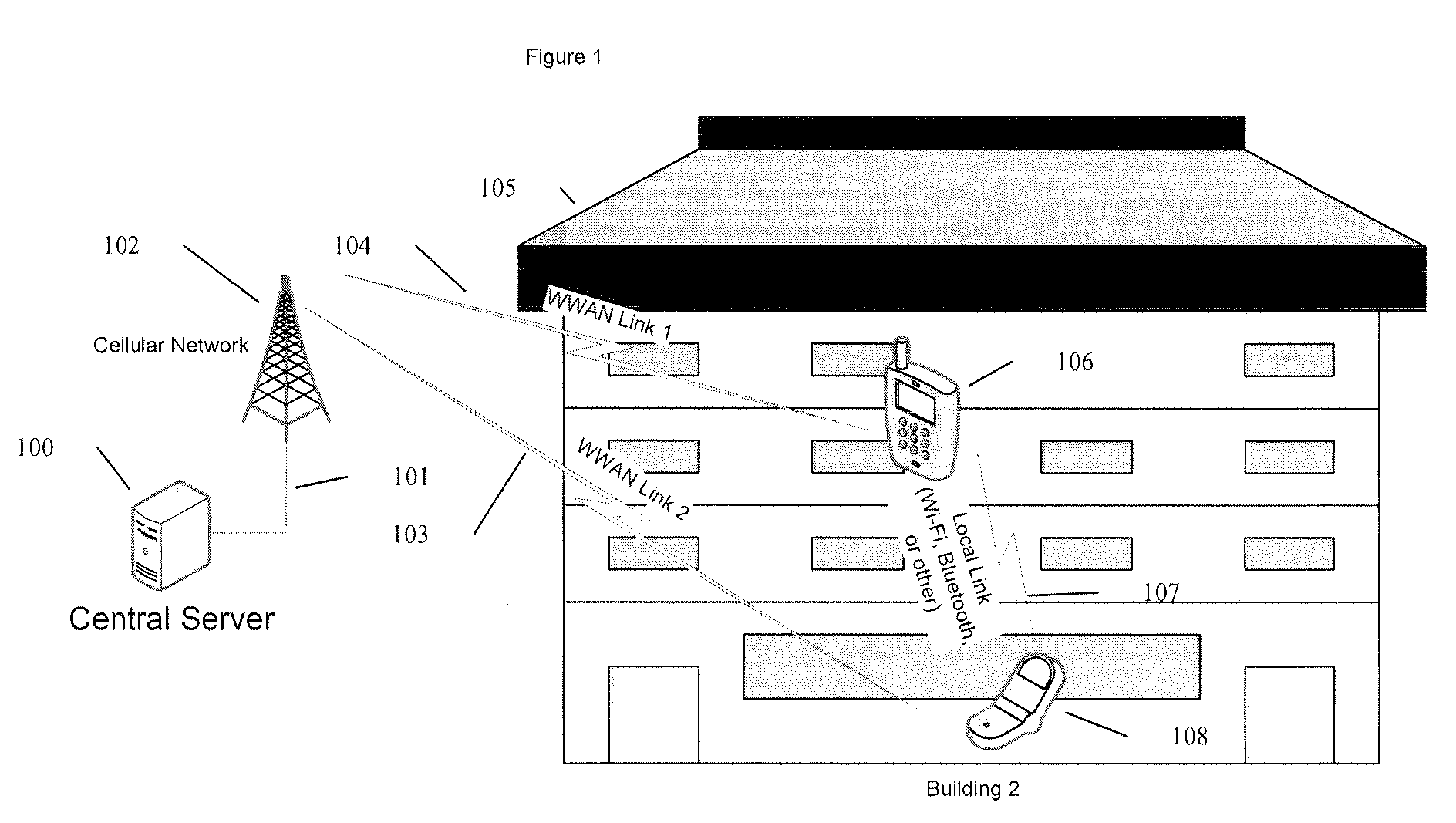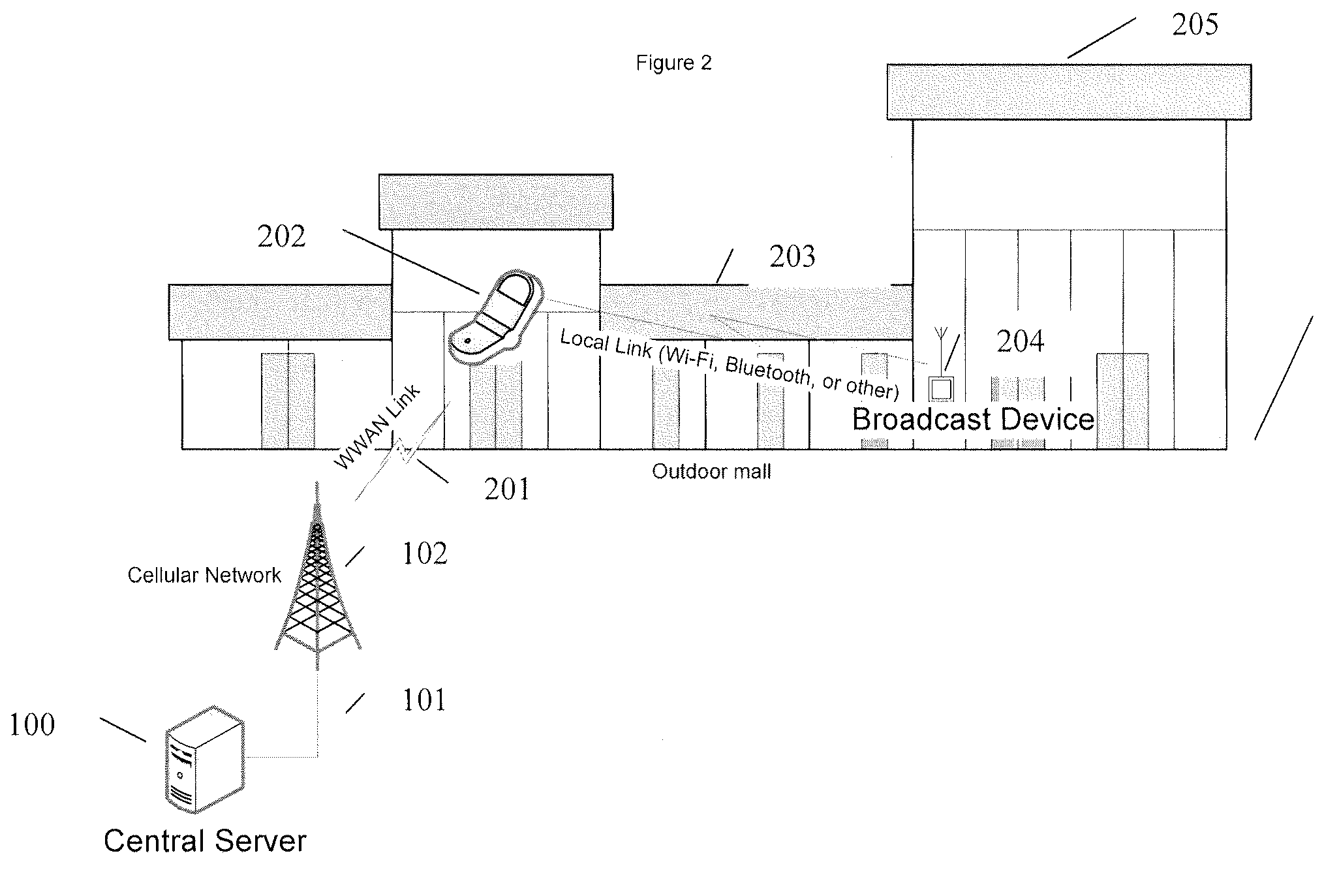Enforcing policies in wireless communication using exchanged identities
a technology of exchanged identities and wireless communication, applied in the field of enforced policies in wireless communication using exchanged identities, can solve the problems of inability to communicate with a peer, inability to receive sufficient signal strength of gps receiver in many indoor locations, and inability to meet the needs of individuals in close proximity to each other, so as to facilitate electronic transactions
- Summary
- Abstract
- Description
- Claims
- Application Information
AI Technical Summary
Benefits of technology
Problems solved by technology
Method used
Image
Examples
first embodiment
[0089]1. In a [0090]One device is transmitting a wireless identifier using a wireless protocol capable of peer to peer communication;[0091]The wireless identifier being associated with a specific account on a server connected to the internet;[0092]A second device receiving the wireless identifier[0093]The second device capable of communicating with the server over an internet connection;[0094]The second device requesting information from the service associated with the first identifier[0095]The second device having a second identifier associated with a second account on the server; and / or[0096]The server providing different amounts of information related to the first account based on the parameters associated with one or both of the first and second accounts
[0097]The identifiers associated with the accounts being updated such that the identifiers would no longer be recognized as being associated with specific accounts without past or current interaction with the server;
[0098]Using o...
second embodiment
[0099]Data necessary to engage in an E-commerce transaction may be exchanged as well such as the identity verification such as via a picture and / or mutual identifier detection.[0100]2. In a second embodiment,[0101]A device is capable of operating two wireless protocols simultaneously, utilizing a first wireless protocol in the device to detect the proximity of another wireless device and using the second wireless protocol to communicate with a remote server, where:[0102]a. One or more of the devices are mobile devices;[0103]b. Where the first wireless protocol is a local, or personal area network wireless protocol such as 802.11, Bluetooth, UWB or other local connectivity protocol;[0104]c. Where the first wireless capability used for detecting the presence of another device, or advertising the presence or a device;[0105]d. Utilizing a wireless wide area data link from one or more of the wireless devices to, optionally:[0106]i. Connect to a central server;[0107]ii. Perform user autho...
PUM
 Login to View More
Login to View More Abstract
Description
Claims
Application Information
 Login to View More
Login to View More - R&D
- Intellectual Property
- Life Sciences
- Materials
- Tech Scout
- Unparalleled Data Quality
- Higher Quality Content
- 60% Fewer Hallucinations
Browse by: Latest US Patents, China's latest patents, Technical Efficacy Thesaurus, Application Domain, Technology Topic, Popular Technical Reports.
© 2025 PatSnap. All rights reserved.Legal|Privacy policy|Modern Slavery Act Transparency Statement|Sitemap|About US| Contact US: help@patsnap.com



